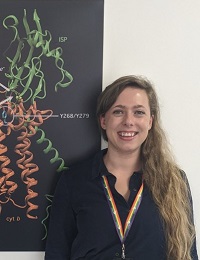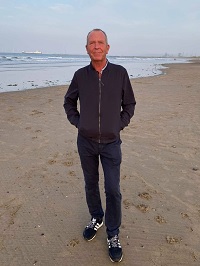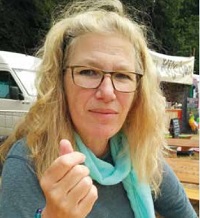Member profiles: Tuberculosis, teaching and science education
Our latest member profiles explore the working lives of postdoctoral researcher Laura Jeffreys MRSB, award-winning teacher Richard Spencer MBE CSciTeach CBiol FRSB, and diversity and inclusion ambassador Ros Roberts CBiol FRSB
These profiles appeared in the December / January 2020 issue of The Biologist (Vol 67 No 6)
A Day in the Life
Dr Laura Jeffreys MRSB on the impact of the pandemic on her research – and her wedding…

My work involves… conducting experiments to screen new drugs against the electron transport chain of Mycobacterium tuberculosis in the hope of a shorter drug regime with fewer side effects to treat tuberculosis (TB). By targeting the electron transport chain we want to specifically starve the M. tuberculosis cells of energy, leading to cell death and the eradication of the disease from the patient. It is estimated that around 25% of the world is latently infected with TB and more than 4,000 people die each day due to this disease.
On a typical day… as a postdoctoral research associate at Liverpool School of Tropical Medicine before the global pandemic, I would divide my time between working in a Category 3 containment laboratory on M. tuberculosis and a ‘normal’ lab working on its non-pathogenic model M. smegmatis. Working in a Category 3 lab is quite time-consuming as you have to wear more personal protective equipment, move everything you might need into the microbiological safety cabinet and spend potentially hours sitting with your arms stretched out in front of you. You cannot remove your arms from the cabinet without disinfecting them to remove potential contamination, so you’ve got to hope you took everything you need in with you the first time otherwise you add more time to the experiment.
Right now I am… taking my TB skills and using them to screen compounds against SARS-CoV-2. We have a wide variety of drugs from well-known treatments already on the market, to compounds produced by chemistry laboratories all over Europe. Working in a team, I am mainly responsible for the development of the drug screens, quantification of viral inhibition and experimental design. It has been exciting having to learn new skills as quickly as possible while working in a team, given that we normally work alone on our projects, except for contributing our viewpoints in group meetings.
I am also… responsible for teaching new members of our group, particularly recently as we have had to increase the number of Category 3-trained individuals to cope with the increased workload. I also teach several online MSc modules at Liverpool School of Tropical Medicine, which began again in September.
After work… I had been planning my wedding, but due to the pandemic we have had to postpone the main celebration to 2021. However, I was very lucky and did manage to get married on the day we’d originally planned with just five guests, showing that although many things have changed during these times, life goes on.
The Career Ladder
Dr Richard Spencer MBE CSciTeach CBiol FRSB on his award-winning teaching career

I first discovered biology aged seven, when my great uncle Eddie took me on walks in local woodlands and taught me the names of the plants and animals living there. I read lots of books on animals from then on and developed a passion for plants through tending my grandmother’s garden.
I studied BSc (Tech) Applied Biology at UWIST, Cardiff, completing two industrial placements during my third year – at Glasshouse Crops Research Institute in Littlehampton, Sussex, and ICI Central Toxicology Laboratories in Cheshire. I specialised in genetics in my final year and went on to complete a PhD in molecular genetics.
A pivotal point in my career was being given the opportunity to lecture on HND and BSc courses in applied biology at the University of Sunderland during my postdoctoral research. I enjoyed the experience immensely and decided that I wanted to teach, so left research to complete my PGCE in secondary education at Durham University. Over the past 28 years I’ve worked in two colleges in Teesside, mainly teaching A level Biology but also A level Chemistry.
The best thing about my job is the opportunity to think of new and creative ways of teaching, to enthuse students and instil in them a love of learning and of biology. I enjoy participating in national and international projects, and the latter has taken me to over 25 countries in Europe and the Middle East. I have received a clutch of regional, national and international teaching awards and other accolades. For example, I was honoured with an MBE for services to science communication, awarded a Top Ten Finalist Medal in the inaugural Global Teacher Prize, and conferred with an honorary master’s degree by the Open University in 2017. I won the RSB’s Secondary School Biology Teacher of the Year Award in 2018.
Currently I’m about to embark on a collaborative project involving 20 teachers, organised by Science on Stage, Europe, on teaching the United Nations 17 Sustainable Development Goals (SDG). Curiously, I wrote my proposal in November 2019 and chose SDG 3: Global Health and Wellbeing, with a focus on the potential impacts of a new pandemic…
A key piece of advice would be that great teachers must be great learners.
Not many of my colleagues will know I am passionate about classical music (I play piano and violin), gardening and local history, and I’m obsessive about genealogy. I have compiled a vast family tree and I enjoy ‘finding the living among the dead’, using DNA matching to unearth distant cousins.
My Society and Me
Ros Roberts CBiol FRSB on what four decades of membership means to her

The RSB and its earlier incarnations have been an important part of my whole professional life. As a biology teacher in the 1980s my membership helped me update my subject knowledge and stay connected with other biologists. Articles from The Biologist informed my teaching and I often took my 6th form students to regional talks.
As I started out on my academic career as a teacher educator, and science education researcher in the 1990s the support from fellow members was important. Through my spells on the editorial board of the Journal of Biological Education (JBE) and my involvement with the Biology Education Researchers’ Group I met like-minded colleagues, while regional activities also helped me develop links with other biologists.
The Society presents biologists’ views to government, so I’ve always felt I had a voice. It has helped keep me up to date, feel part of a community and has inspired my university teaching and research. The recent COVID-19 bulletin and science policy newsletters have been a great source of trusted information during the lockdown.
Now that I have retired from Durham University I hope to have more time to help develop the Northern Region committee’s activities, as well as represent the JBE as a diversity and inclusion ambassador so that the RSB can continue to support the needs of all biologists, as it has done mine.


